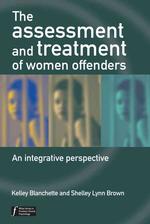- ホーム
- > 洋書
- > 英文書
- > Politics / International Relations
基本説明
Features the writings of Kant, Hegel, Marx, Nietzsche, Freud, Weber, Pollock, Horkheimer, Adorno, Marcuse, Pollock, Horkheimer, Adorno, Marcuse, Habermas, Honneth, Fraser, Cox, Linklater, Ashley and Walker, Sylvester, and Devetak.
Full Description
This innovative new Reader provides students, scholars, and practitioners with a comprehensive overview of essential works of critical theory and critical international relations (IR) theory, including the writings of Kant, Hegel, Marx, Nietzsche, Freud, Weber, Horkheimer, Adorno, Marcuse, Habermas, Linklater, and Honneth, among others.Steven Roach frames each chapter showing the major tensions of four periods of the extension of critical theory into critical IR theory. This rich narrative, telling the story of how critical theory entered into international relations theory, seeks to deepen the reader's historical and sociological understanding of the emancipatory project of critical IR theory. Postmodernist and feminist texts are included to give context to the question of whether the discipline is in crisis or is working toward a cohesive and reflexive framework.
Contents
Introduction1. The Roots of Critical Theory: German IdealismImmanuel Kant, from Groundwork of the Metaphysics of Morals * Immanuel Kant, from The Metaphysic of Morals * Immanuel Kant, "Idea for a Universal History with a Cosmopolitan Purpose" * Georg Wilhelm Friedrich Hegel, The Phenomenology of the Spirit, "Self-Consciousness" and "Reason" * Georg Wilhelm Friedich Hegel, The Philosophy of Right, "Civil Society and the State"PART II. HISTORICAL MATERIALISM2. Internationalism, Hegemony and OrthodoxyKarl Marx, from Economic and Philosophic Manuscripts of 1844 * Karl Marx, from Capital * Antonio Gramsci, "Hegemony and Problems of Marxism," from Prison Notebooks * Georg Lukacs, "What is Orthodox Marxism?" from History and Class Consciousness3. Psychological Repression and the Perils of ModernitySigmund Freud, from Civilization and its Discontents * Friedrich Nietzsche, from The Genealogy of Morals * Max Weber, from Economy and SocietyPART III. CRITICAL SYNTHESIS4. The Critique of Instrumental Reason: The Reification of SocietyMax Horkheimer, "Traditional and Critical Theory," from Critical Theory: Selected Essays * Max Horkheimer and Theodor Adorno, from Dialectic of Enlightenment * Theodor Adorno, from Negative Dialectics * Herbert Marcuse, from One Dimensional Man5. State Capitalism: Its Limitations and PossibilitiesFriedrich Pollock, "State Capitalism: Its Possibilities and Limitations" * Herbert Marcuse, "The Dialectic of the Soviet State," from Soviet MarxismPART IV. GLOBAL SOCIETY6. Communicative Action Theory: Hermeneutics and RecognitionJurgen Habermas, from The Theory of Communicative Action * Jurgen Habermas, "Citizenship and National Identity (1990)", from Between Facts and Norms * Axel Honneth, "Disrespect and Resistance: The Moral Logic of Social Conflicts," from The Struggle for Recognition * Nancy Fraser, "Dilemmas of Justice in the Post-Socialist Age: From Redistribution to Recognition?," from Justice Interruptus7. Critical IR Theory: Dialogic Communities, Ethics and NormativityMark Hoffman, "Critical Theory and the Inter-Paradigm Debate" * Mark Neufeld, from The Restructuring of International Relations Theory * Andrew Linklater, "The Question of the Next Stage in International Relations Theory: A Critical-Theoretical Point of View" * Mervyn Frost, "The Role of Normative Theory in IR"8. Global Political Economy: Social Forces and DialecticRobert Cox, "Social Forces, States and World Order" * Justin Rosenberg, from The Empire of Civil Society * Claire Cutler, "Locating Authority in the Global Political Economy" * Stephen Gill, "Globalisation, Market Civilisation, and Disciplinary Neoliberalism" * Christian Heine and Benno Teschke, "Sleeping Beauty and the Dialectical Awakening: On the Potential of Dialectic for International Relations"PART V. A NEW CRITICAL PHASE? NORMATIVE CRITICAL THEORY AND ITS CRITICS9. Postmodern Thought: Genealogy, Power/Knowledge and DeconstructionMichel Foucault, "Two Lectures" from Power/Knowledge * Jacques Derrida, "Conjuring Marxism," from Specters of Marx * J.F. Lyotard, from The Postmodern Condition10. Postmodernism and Feminism in IRRichard Ashley and R.B.J. Walker, "Reading Dissidence/Writing the Discipline: Crisis and the Question of Sovereignty in International Studies" * Jens Bartelson, "The Problem: Deconstructing Sovereignty," from A Genealogy of Sovereignty * Christine Sylvester, "Empathetic Cooperation: A Feminist Method for IR"11. Critical IR Theory and its ResponseRichard Devetak, "The Project of Modernity and International Relations Theory"








